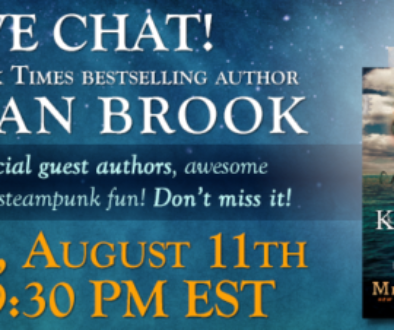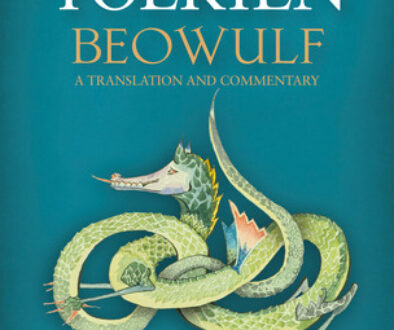Cell, Stephen King, and Sick Meljean
Blergh. I’m sick with a nasty headcold. Still writing, though. I’m pleased with how this version of the proposal is going, and it’ll definitely be out by Monday. Which is good, because I just got the copy-edits back for “Paradise” (in WILD THINGS, with Maggie Shayne! and Marjorie Liu! and Alyssa Day! /shameless crowing) and those are due the 18th, so it’ll be nice to focus on that while doing the final marketing stuff for DEMON ANGEL, instead of switching between stories in my head (I’m not good at that. I have tunnel vision when I’m working on a story.)
I want to thank everyone who’s offered a suggestion in the “name that series!” contest so far — they’ve been great! (How sad is it that I can write a book, but titling it is beyond me? BTW, random aside, my vote for favorite titles have to be: ATLAS SHRUGGED (how freaking fantastic is that?! …even if the author isn’t my cuppa) GRAVITY’S RAINBOW, and THE SOUND AND THE FURY.) The contest will remain open for another week.
I also read a book that I hadn’t intended to read (because I’m short on time this week) but I justified it with an excuse that went something like: my brain needed a break. It needed to … zombiefy for a bit. And since my mom remembered that I’d mentioned I wanted to get Stephen King’s CELL and brought it up for me when she visited this week, I just HAD to read it. Anything else would have been churlish. (Five points to anyone who knows the Johanna Lindsey book I’m kinda-sorta channeling with “churlish” — because I think that may be the only place I’ve actually seen “churlish” used.)
 Anyway, CELL. (It’s in the new tall mass market format, and I must say it didn’t bother me or help me. I didn’t notice much difference at all, and I was reading it in pretty bad light. So if the design is for ease of reading and weak-eyed middle-agers … well, I don’t think the new format helps much.)
Anyway, CELL. (It’s in the new tall mass market format, and I must say it didn’t bother me or help me. I didn’t notice much difference at all, and I was reading it in pretty bad light. So if the design is for ease of reading and weak-eyed middle-agers … well, I don’t think the new format helps much.)
From Amazon.com:
Witness Stephen King’s triumphant, blood-spattered return to the genre that made him famous. Cell, the king of horror’s homage to zombie films (the book is dedicated in part to George A. Romero) is his goriest, most horrific novel in years, not to mention the most intensely paced. Casting aside his love of elaborate character and town histories and penchant for delayed gratification, King yanks readers off their feet within the first few pages; dragging them into the fray and offering no chance catch their breath until the very last page.
In Cell King taps into readers fears of technological warfare and terrorism. Mobile phones deliver the apocalypse to millions of unsuspecting humans by wiping their brains of any humanity, leaving only aggressive and destructive impulses behind. Those without cell phones, like illustrator Clayton Riddell and his small band of “normies,” must fight for survival, and their journey to find Clayton’s estranged wife and young son rockets the book toward resolution.
Fans that have followed King from the beginning will recognize and appreciate Cell as a departure–King’s writing has not been so pure of heart and free of hang-ups in years (wrapping up his phenomenal Dark Tower series and receiving a medal from the National Book Foundation doesn’t hurt either). “Retirement” clearly suits King, and lucky for us, having nothing left to prove frees him up to write frenzied, juiced-up horror-thrillers like Cell. Stay tuned for more from the hardest-working retiree in the business with Lisey’s Story, coming in October 2006.
I liked it. I don’t think it was as great as, say, THE STAND or as freaky as IT, but it entertained me, pulled me along (I stayed up until 6am finishing it, reading by the light of my laptop. No wonder I’m exhausted and sick Stephen King you bastard!) One thing that differentiated it from both of those novels was staying in one POV the whole of the book. Perhaps that added to feeling that it was less complex … but it is less complex.
Which is fine with me.
Stephen King is one of the few authors whose writing advice I actually suck up — many books on writing don’t speak to me, because I don’t feel a connection with the way they describe writing and the way I write. But Stephen King, I do, even though my process is different, and my style is a lot different.
I think it comes from the sense that he’s a storyteller, first and foremost. His writing, I like — it’s clean and straightforward, no little tricks or dips into overwrought prose. He just gets the story across as precisely as possible. And there are times when I think that clean style of writing, that transparent writing, is just as beautiful as the most incredibly rendered sentence, the most poetic language. And it fits a book like this. If I’m noticing the writing, it’s taking me away from the story (some books, that’s okay — a book about zombies? Not so much).



